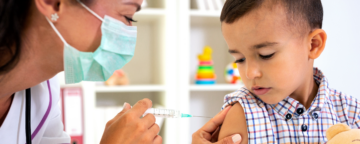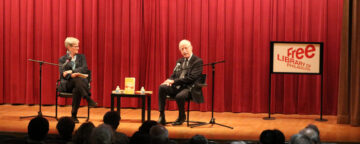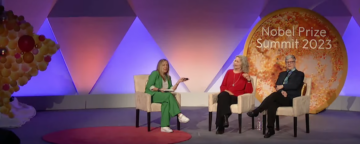Most U.S. adults support school vaccination requirements and policies requiring children to be vaccinated against preventable diseases such as measles, mumps, and rubella, an APPC study finds.


Most U.S. adults support school vaccination requirements and policies requiring children to be vaccinated against preventable diseases such as measles, mumps, and rubella, an APPC study finds.

Former NIH director Francis Collins and APPC's Kathleen Hall Jamieson discussed science, faith, trust, and Collins' new book "The Road to Wisdom" at the Free Library of Philadelphia.

An analyses of ASK survey data find perceptions of scientists’ credibility remains high, but eroded somewhat from 2023 to 2024 -- and perceptions of AI scientists are lower than for scientists in general.

APPC hosted the annual SEJ conference April 3-7, focusing on Democracy, Disinformation, Activism… What’s Environmental Journalism’s Role?”

Confidence in science remains high but has declined in the past few years, with just 42% saying scientists can overcome their biases.

In PNAS, APPC researchers identify factors that reflect public assessments of science and are associated with public support for increasing U.S. funding of science.

On average, corrections of misinformation in science did not succeed, but a new meta-analysis identifies political and psychological factors that make corrections more successful.

Kathleen Hall Jamieson spoke about reducing public susceptibility to misinformation in science. One way would be to rename the VAERS vaccine-safety reporting system.